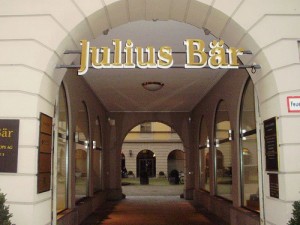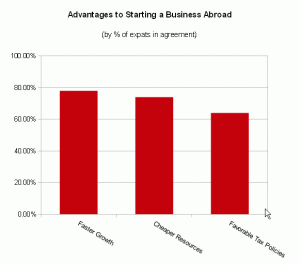
India's latest tax treaty with Switzerland is aimed at improving access to information on potential tax evaders.
A double tax treaty recently inked by India and Switzerland grants Indian authorities the right to request information on suspected tax evaders for any period starting January 1st, 2011. This is one of just 70 tax treaties the Swiss have renegotiated since 2009, reported Simon Bradley at Swiss Info.ch, shedding further light on the once shadowy world of Swiss banking in an effort to help other OECD countries fight tax evasion and fraud.
Bradley interviewed tax specialist Mark Herkenrath, who insisted the exchange of information on foreign taxpayers had become only slightly easier:
It’s a Catch-22 situation. t remains difficult, as you need to already have lots of information to get the information you need, such as a customer name, strong evidence of evasion and details of bank contacts, such as the bank branch. As seen by the recent cases of Germany and the United Kingdom, a good DTA is not enough. These powerful neighbors have already negotiated new agreements which provide easier access to tax information. The Indian government got the maximum it could as an emerging market but influential industrial countries can get more information.

Paul Fosch Auctions is asking just GBP 7,000 for this Maerdy home. But buyers beware... of rats.
Britain’s cheapest house has gone up for auction, reports The Daily Mail‘s Simon Tomlinson. Paul Fosch Auctions is asking just GBP 7,000 for the home, which is a classic “fixer-upper.” Still, hopeful expat property moguls should think twice about placing a bid in tomorrow’s auction.
According to Paul Fosch’s Heidi Wangemann, the interior is a mess–so much so that the company hadn’t been able to make a full assessment of value. On top of that there are apparently still signs up warning any tenants to destroy rats.
Tomlinson quoted Nigel Lewis, property analyst at Findaproperty.com, who said:
Anything under a £30,000 asking price means there must be something horribly wrong with it. These are desperation homes. The bricks and mortar may be worth more than £7,000, but these houses are often in areas cut off from the economy.

New rules governing external transfers will force expats to keep the bulk of their earnings within Saudi Arabia.
Saudi Arabia’s Minister has announced the country will limit the amount of money expats can send out of the country, according to a report by Eman El-Shenawi in Al Arabiya. New regulations will require expats keep the bulk of their money in Saudi Arabia. The measure is aimed at boosting Saudi Arabia’s economy and lowering unemployment among locals–which stood at 10.8% in July.
El-Shenawi quoted Labor Minister Adel Fakih, who said:
About nine out of 10 workers in the country are foreigners. This has led to millions of riyals being transferred back to their home countries, harming the local economy.
The Saudi Labor Ministry hopes the transfer limit and 30 other initiatives (ranging from caps on the population of foreign workers to job skills training) will halve unemployment within the next three years, wrote El-Shenawi.

Prague’s property market has shown signs of recovery, including rising mortgage volumes.
Prague may be making a comeback as a hot property market, according to Brett Tudor on The MoveChannel. The country has spent the last ten years building a reputation as a sound investment location, and its performance has outstripped many other former communist bloc countries.
In some ways, Tudor writes, the Czech Republic’s communist past may have insulated it from the real estate craze of the 2000s:
While property price growth was certainly healthy prior to 2008, some of the spectacular price increases (or bubbles) seen in some of the other cities around Europe didn’t quite materialise to the extent they did elsewhere, it was more a case of steady growth backed up by a strong rental market, as demand from young professionals living and working in the city’s high tech industries continued to rise.

Guy Stephenson has worked with expatriate banks for more than 20 years. He believes that the market consolidation has opened up new business opportunities
If there’s one person with experience in marketing financial services to expats, it’s Guy Stephenson, Director at Nacelle. Having targeted expatriates since 1988, he has worked with many of the big expat brands in the market.
In an interview, Guy explains why more than 50% of British expat banks have disappeared in the last decade, and how this consolidation has opened business opportunities for new products and services.
Guy, you have been working with expat banks for more than 20 years. How has the market changed?
Before 2005, there were more than 10 independent banks and building society subsidiaries targeting British expats for their savings and mortgage business. Expat customers could save their money either with the five big expat banks – HSBC, Lloyds TSB, Barclays, Nat West or Santander – or with a range of smaller, specialist banks and building societies, like Bradford & Bingley International, Derbyshire Offshore, Scarborough Channel Islands, Halifax International or Alliance and Leicester International.
Since then, many of these small banks were taken over, such as Alliance, Leicester International and Bradford and Bingley International, by larger players like Santander. Those that were left were hit by new financial regulations which made many of the previous business models unsustainable. Today, around half of British expat savings banks have disappeared.

Two Julius Baer client advisors have been charged with helping US citizens commit income tax fraud, according to a Bloomberg report.
Two Julius Baer Group Ltd. client advisors were charged with helping American customers evade taxes, according to a recent Bloomberg report by David Voreacos and Giles Broom. The pair, Daniela Casadei and Fabio Frazzetto, are charged with conspiring to aid 180 clients in hiding at least USD 600 million from the Internal Revenue Service.
American tax authorities have been cracking down on foreign banks as of late. Charges have been filed against more than 30 clients and 20 advisers from eight banks, including UBS, HSBC, and Credit Suisse.
In terms of the Baer scheme, the Bloomberg story quoted US attorney Preet Bhara, who commented:
[Casadei and Frazzetto told their US clients their assets] would not be disclosed to the IRS because Swiss Bank No. 1 had a long tradition of bank secrecy and no longer had offices in the United States, making Swiss Bank No. 1 less vulnerable to pressure from U.S. law enforcement authorities than other Swiss banks with a presence in the U.S.
Expats rate Singapore as the best country to open a business, followed by Hong Kong and the US. These were the results of the fourth annual NatWest International Personal Banking (IPB) Quality of Life Index. NatWest found expats in Spain, Portugal and France least positive about their business environments.
The study, conducted in cooperation with the Centre of Future Studies, looked at which countries make it easiest for expats to do business. Criteria included overall business climate, tax regimes and bureaucracy.
74% of respondents said cheaper resources were the biggest advantage of doing business abroad, while 65% cited foreign tax policies. A full 71% were in agreement that regulations and bureaucracy were the biggest challenges.

Even in London, buying property is now cheaper than renting it on average.
Falling prices and rising demand have made it cheaper to buy than rent property in 45 of Britain’s 50 largest towns and cities. It is now an average 13% more expensive to rent than own, according to research from property search website Zoopla.co.uk.
The results were based on a comparison of asking prices and rents based on an interest-only mortgage of 5% per annum. Even in London (where the average asking price for a 2-bedroom flat is over GBP 400,000), buying is still cheaper than renting. Here by an average 28%.
Zoopla’s Nicholas Leeming commented:
With house prices down, low interest rates and sky high demand in the private rental sector, buying has never been a better option for those able to secure a mortgage. And with owners reducing prices further in order to achieve a sale before Christmas, there may well not have been a better time to buy in recent times.

Trusts and foundations are a powerful tool expats can use to transfer wealth.
The ever-changing nature of global tax and legislative environments has helped drive development in the international trust industry, with clients counting on trusts to transfer wealth between generations. Gone are the days of the one-size-fits all fund–today trusts can be bespoke (earmarked for a particular purpose), multi-jurisdictional and may also include professional protectors and guardians.
The product range typically offered by an expert trustee includes traditional client discretionary trusts, reserved powers structures, structures designed to own operating companies, specialist investment funds, international pension funds, QROPS/QNUPS structures and even marine and aviation services.

Nick Lewandowski worked in Egypt as editor of CI Capital Holding. Opening a bank account with the parent company, CIB, turned out to be a big mistake.
I currently have the equivalent of USD 3,000 trapped in a current account in Egypt. This is my story, which I tell to illustrate the potential pitfalls when dealing with local banks as an expat.
Banking is high on the list of things an expat needs to sort out when moving abroad. He needs an account where he can deposit pay (no one wants to be hiding cash under a mattress), easily withdraw cash for bills and other expenses, possibly even link to a foreign credit card.
Big international banks such as HSBC offer robust offshore banking packages, but require high “relationship balances”–in HSBC’s case the equivalent of GBP 25,000. For established professionals this is no problem.
For those of us early in our careers, however, it’s nearly impossible to spare that much cash. This leaves us with two options when moving abroad: stay with our bank at home (and pay hefty commissions and conversion fees on international transfers and transactions) or go with a local bank. I opted for the latter, and it turned out to be a big mistake.
